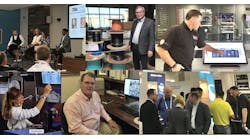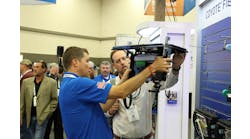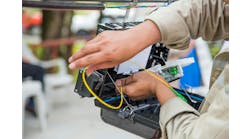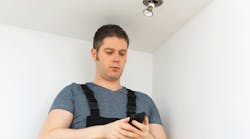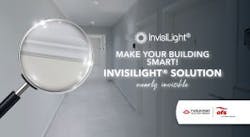Latest from Professional Development/Leadership
More Than 60% of Smart Energy Products Were Self-Installed
Parks Associates released new consumer research showing consumers are increasingly comfortable self-installing smart energy devices, such as smart light bulbs, smart thermostats, and smart plugs/adapters. Energy Management, Utilities, and Smart Home, featuring a survey of 10,000 US broadband households in Q4 2018, reports that 59% of smart thermostats were self-installed, 79% of smart light bulbs were self-installed, and 68% of smart lighting control systems were self-installed.
InvisiLight® Solution for Deploying Fiber
April 2, 2022Go to Market Faster. Speed up Network Deployment
April 2, 2022Episode 10: Fiber Optic Closure Specs Explained…
April 1, 2022Food for Thought from Our 2022 ICT Visionaries
April 1, 2022“Smart-energy consumers are DIYers, so utilities with broad BYOD (bring your own device) programs are able to target the largest segments of smart home device ownership,” said Denise Ernst, Vice President, Parks Associates. “Retail is the dominant sales channel for smart energy devices, including both brick-and-mortar stores as well as online retail. Partnerships with these third parties can help utilities expand offerings and improve customer satisfaction.”
The research also finds that 76% of solar PV owners are interested in a system that connects smart thermostats and water heaters in order to optimize their investments.
“Depending upon the state policies on renewable energy, the investment in solar energy for the home has too long of a perceived payback period,” Ernst said. “By integrating with other devices in the home, this payback period can be reduced.”
Energy Management, Utilities, and Smart Home provides insights on consumer interest and participation in energy management products and services, including the appeal and role of incentives in awareness and adoption of energy-efficiency solutions. It examines non-participants to reveal strategies to involve more consumers in energy programs and provides details on consumer awareness, participation, and interest in value-added services related to smart energy devices, including the impact of demand response programs.
Additional research from Energy Management, Utilities, and Smart Home:
• 54% of US broadband households do not know if their electricity provider offers energy programs.
• 35% of smart home device owners are knowledgeable about rebate programs.
• 32% of smart thermostat owners report that rebates, discounts, or coupons did not have any impact on their purchase decision, but two-thirds report those offers did impact their decision.
For more information about this research, please visit https://www.parksassociates.com/360view/360-energy-2019.
Like this Article?
Subscribe to ISE magazine and start receiving your FREE monthly copy today!
About the Author: Parks Associates is an internationally recognized market research and consulting company specializing in emerging consumer technology products and services. The company’s expertise includes digital media and platforms, entertainment and gaming, home networks, Internet and television services, digital health, mobile applications and services, support services, consumer apps, advanced advertising, consumer electronics, energy management, and home control systems and security. For more information, please visit http://www.parksassociates.com.
